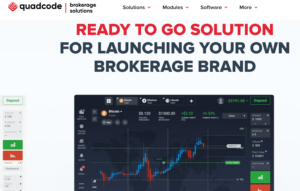SEC v. Ripple: XRP is not subject to SEC under pending bill, said attorney Thien-Vu Hogan
This would mean XRP is a Digital Asset and subject to regulation by the CFTC and not the SEC. Large parts of the SEC lawsuit would then become Moot, according to attorney Thien-Vu Hogan.

Attorney Thien-Vu Hogan, the founding and managing partner of Hogan & Hogan, has reviewed the proposed legislation introduced by U.S. Representative Don Beyer in late July.
The Digital Asset Market Structure and Investor Protection Act aims to protect consumers and promote innovation by incorporating digital assets into existing financial regulatory structures.
The first note to the bill is that it is an Amendment of the 1934 Securities Act, which adds Section 101(a) defining a “Digital Asset Security”: a digital asset which “Provides the holder of the digital asset with any of the following rights. And then if you see Roman Numeral I-IV, it basically is defining what you traditionally think of as a security – “Rights to profits, interest or dividends … voting rights.”
SEC and CFTC dispute crypto oversight: Which will rule over Ripple’s XRP?
This is where attorney Thien-Vu Hogan finds the way out for Ripple’s XRP. The definition is “basically what former Director Hinman was talking about in his speech”.
The law defines a security as a digital asset where the platform is not fully built out and for which the money from the sales fund the development of the proposed service, goods, or platform of the issuer, she said in a video.
“And that is it. If the digital asset does not act like a traditional security – like a share of a company, and the money from the sale is not used to build the digital platform, then it’s not a Digital Security and not subject to regulation by the SEC.”
The lawyer then went step by step in her analysis of XRP as a potential security:
“The first part of the test is whether XRP has any of the hallmarks of a traditional security. If you own XRP, do you have an equity interest of voting rights in Ripple? No, absolutely not. That’s an easy one.”
As to the second part of the test: was the service, good or platform was “wholly operational” at the time of the sale or is the money from the sale used to fund the development of the platform?
“This part of the test is a little more complicated but certainly the XRP ledger, etc. which is the base of the Ripple Platform is and has been “wholly operational” for some time.
“You can make an argument that certain of the newer products that Ripple has deployed in the last couple of years are new and that XRP sales money was used to develop them but Ripple’s business is the software that “surrounds” the platform and definitely does not seem the kind of the thing the legislation envisions as a “Digital Security.”
If this legislation passes, XRP is unlikely to fall under the definition of a “Digital Security” asset, so not subject to regulation by the SEC, Ms. Hogan concluded.

Given that the bill could be enacted while the SEC v. Ripple is ongoing, the question as to whether the law applies retroactively arises.
“Well, the United States Supreme Court gave us an answer in 1994 in the case of Landgraf v. USI Film Products. The Landgraf case was a sexual harassment case but it involved application of a change of law during the pendency of litigation and provides a framework for our XRP analysis.”
Additionally, the US Constitution says in Article 1 that “No state shall..pass any ex post facto law or law impairing the obligation of contracts.”
Ex post Facto applies in only two situations: (1) to criminal statutes; and (2) where the after-the-fact law imposes greater civil penalties on the subject, according to the lawyer.
“So here, applying the new law to Ripple’s situation, we pass those two tests because the law is not criminal and none of the Defendants are charged with a crime and also because in this specific case the law would NOT create greater civil penalties, in fact, it would probably lead to the end of the lawsuit.”
As to legislator intention, the Landgraf case points to the EFFECT that the statute will have: If the law increases the parties’ liability for past conduct, it’s not applied retroactively.
This specific proposed bill increases liability, especially for exchanges, but not as to whether XRP is a security or not. “So, in that case the new law helps Ripple and therefore it will very likely be applied retroactively.”
“So our conclusion from applying this pending law to the SEC v Ripple case is that the Courts would likely apply the law retroactively and under this new definition at least a large part, certainly the last few years of Ripple’s business practices, XRP would be defined as just a Digital Asset and not a Digital Asset Security and therefore not subject to SEC regulation.
“This would mean XRP is a Digital Asset and subject to regulation by the Commodity Trading Commission and not the SEC and large parts of the SEC lawsuit would become Moot”, attorney Thien-Vu Hogan concluded.









